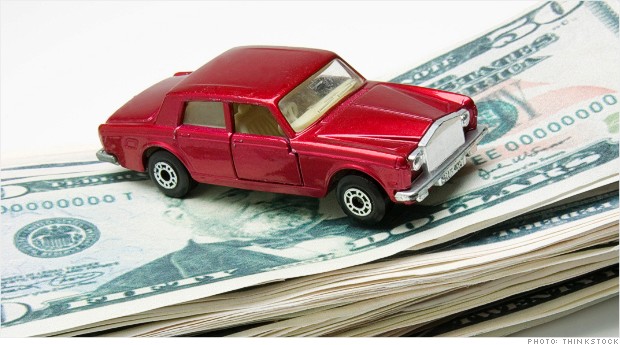Last Update: August 27, 2015

How much does it cost to own a car? How many of us think about that at all?
Supposedly electric cars are too expensive, and many prospective buyers are waiting for the price to fall. Since we’re collectively ignoring the actual cost to own one kind of car versus another, it seems we probably don’t understand what it means to dismiss electric cars because they’re too expensive. Yes it’s obvious the MSRP (purchase price) for an electric car is higher than the equivalent gasoline car, but that’s not the entire picture. What if on a total cost of ownership basis electric cars are far cheaper than gasoline cars?
It seems that most people just buy the car and then simply accept the expenses as a “given”. Of course you stop every few days to buy more gasoline. Of course you get an oil change 4 times a year. Of course you pay for this, and pay for that, everyone does it. But, if your car didn’t demand all those costs, if it didn’t require expensive fuel, didn’t require oil changes, if it didn’t require other routine maintenance, might that car be less expensive?
The cost for owning a car is much more than the purchase price, even if most people ignore that fact.
Spread around the Internets are plenty of cost of car ownership guidelines and calculators meant to help us decide which car is the best deal. Interpolating the cost of ownership models into one, we get this:
- Carrying costs – Costs associated with the car purchase
- Finance & Interest
- Depreciation
- Taxes & Fees
- Operating costs – Day-to-day costs
- Insurance
- Fuel costs
- Maintenance
- Repairs
Generally speaking the carrying costs decrease over time while the operating costs go up over time. For example, an old car tends to break down more than a new car, costing more maintenance and repair dollars. At least that’s true for gasoline cars, electric drive trains should be more reliable over the years. For example, for the older car you’ll have paid off the financing charges, there’s little value left to depreciate, and car taxes for old cars tends to be lower.
There’s a truism going around that Cars are the second largest expense for the typical American family. A search around the web didn’t turn up solid evidence, but this list shows us car ownership incurs lots of expenses way beyond the purchase price.
A clear minded strategy to reduce car ownership costs is to consider enrolling in car sharing systems or using public mass transit systems. Both are less expensive and let you dispense with several costs and hassles of owning a car. Demographic studies are showing a growing portion of Americans want to live that way, and the car companies are exploring the potential of automated self driving car sharing fleets as a way to address urban gridlock and other resource issues with the current individual car ownership model.
We’re expected to adopt electric cars because to save the planet, but should we bankrupt ourselves in the process? No. And we won’t go bankrupt if we understand the costs and how to make the most benefit from an electric car.


